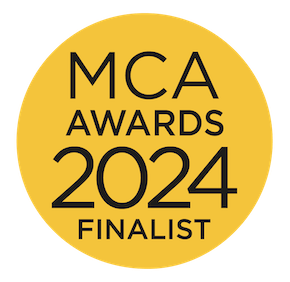Best Use of Thought Leadership

Through research into societal trends and social needs, PwC discovered a significant gap in local knowledge on how to assess impacts and value in the third sector. Although well-established in the international development, private and public sectors, local charities and similar non-profit organisations often lack robust metrics to demonstrate the effectiveness of their work. PwC saw that combining approaches from these other sectors with local knowledge could provide an end-to-end approach appropriate and usable by charities in the local context.
With government and philanthropic funders increasingly making decisions based on quantified performance, the absence of a common language can create obstacles to raising funds, prioritising resources, influencing policy and, fundamentally, demonstrating that charities are effective at doing what they exist to do.
PwC Channel Islands worked with three Jersey charities to develop an Impact Accelerator Programme that helps third-sector organisations articulate their purpose, monitor and report their quantified impacts, and sustain their focus through ongoing changes.
To ensure the work’s effectiveness, PwC focused on addressing three common obstacles that each organisation faced – knowing the nature of its impact, to focus its priorities and activities on a clear vision and effective outcomes; having a narrative that tells a credible story to supporters and policymakers; and sustaining and diversifying income, by demonstrating outcomes clearly.
The firm wanted to focus on building the charities’ own capabilities and equip each organisation to fully own its impact assessment process. Over six months, PwC worked hand in hand with the charities to help them clarify their thinking and produce analyses and materials in their own branding.
PwC’s team drew on its wide range of skills to conduct high-quality research and develop a rigorous approach, which led to a four-phase programme that was tailored to each charity. Theory of Change workshops helped participants agree on a shared vision, explore each charity’s desired long-term impacts, and identify the specific outcomes that would achieve them. A Baseline Assessment enabled each charity to quantify its social, economic and environmental value, source the relevant data and visualise it with Power BI, then benchmark the results against comparable organisations.
From that position, Impact Monitoring & Reporting Guidance equipped each charity to use the ongoing insights to inform its decision-making and external reporting. Finally, an Impact Framework was co-developed with each organisation, giving them a mechanism for assessing and monitoring changes over time.
PwC’s work established a new and distinctive approach to assessing impacts, and empowered the three charities to translate their good deeds into great outcomes. By bringing together strategy, monitoring, evaluation and impact, the programme has enabled the organisations to demonstrate their social, economic and environmental benefits in monetary terms that speak effectively to a wide range of funders, donors and other stakeholders.
This good work has not gone unnoticed and, although not actively promoted, word of its effectiveness has spread through the wider third sector. As a result, it could profoundly change how the sector further strengthens its impact and demonstrates value for society as a whole.
View the PwC profile in the MCA Members Directory.

